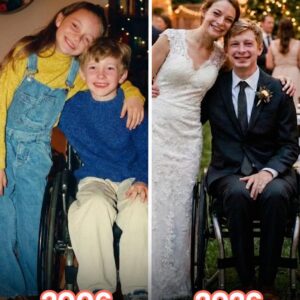I dated a guy named Ethan for three years, and a few months into our relationship, he told me he had cancer. I remember the way my heart sank when he said it, and how I immediately promised to be there for him no matter what. From then on, I stood by his side through what I believed were treatments, tough weeks, and emotional breakdowns. He would come to me exhausted, saying the chemo made him weak. He shaved his head, claiming the hair loss had started. He even showed me hospital bracelets and pictures of himself in what looked like a hospital gown with IV tubes attached. I cried for him, supported him, rearranged my schedule for him, and spent countless nights comforting him when he said he was scared or in pain.
I drove him to “appointments,” waited outside for hours because he said he didn’t want me to see him sick, and believed every word. I skipped events with family and friends just to make sure he never felt alone. Over time, my whole life revolved around caring for him through his supposed illness. I wrote letters for his bad treatment days and tried to keep him smiling when he said he wanted to give up. Loving him became more like a mission to keep him alive.
Then one afternoon, I received a Facebook message from a woman claiming to be his sister. She said, “Hey… I’m not sure what Ethan has told you, but he’s not sick. He’s done this before.” My heart pounded as I called her for confirmation, hoping it was some mix-up. She calmly explained that Ethan had no cancer, had never been in treatment, and had faked similar stories with other people in the past. The hospital bracelets were from a relative’s stay, the photos were from a minor ER visit years ago, and the hair shaving was purely for effect.
When I confronted him, he first denied it, then broke down crying. He told me he was scared I would leave if he didn’t have something that made me care deeply for him. He said he loved how nurturing I was and didn’t want to lose that attention. He claimed he thought if I believed he was sick, I would never walk away. I stood there in disbelief, not knowing whether to scream or cry. Instead, I quietly gathered my things and walked out.
Leaving wasn’t just about ending the relationship—it was about leaving behind three years of lies, emotional manipulation, and a version of myself that had been twisted into feeling responsible for someone who never actually needed saving. It took months to process what had happened and even longer to trust my judgment again. I learned that love built on deception isn’t love at all, and that being kind and supportive doesn’t mean allowing yourself to be used. Some people will break more than your heart—they’ll make you question your entire reality. But healing comes when you choose yourself again, and I finally did.





